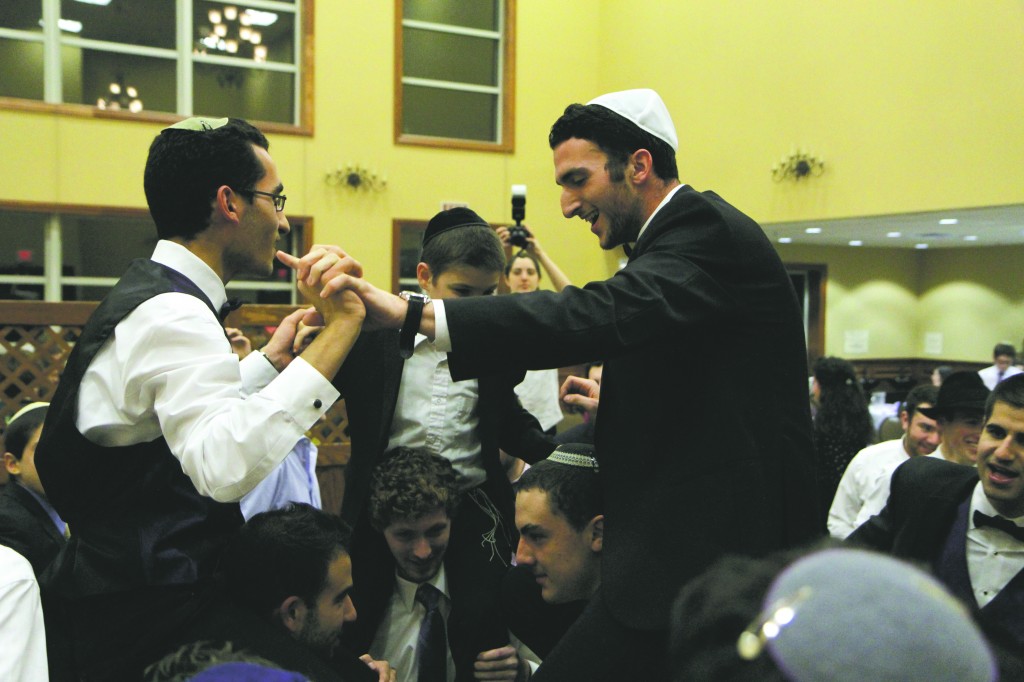
It might have been fake, but the “My Big Fat Jewish (mock) Wedding” was a real good time.
The event, held by Chabad at Binghamton University every three or four years, was meant to introduce traditional Jewish culture to students.
“We organized the event for its educational value,” said Rivkah Slonim, co-director at Chabad. “A Jewish wedding is rich in custom, and many students haven’t been to one before. It’s educational, and it’s fun.”
The ceremony was held Thursday evening at the Chabad Center for Jewish Student Life at Binghamton University on Murray Hill Road. It featured all the culture, prayer and dance of a Jewish wedding — just without the actual marriage.
To the unknowing spectator, the event might have seemed like a real wedding. It began with a gender-separated cocktail hour complete with hors d’oeuvres. Volunteers, composed of Chabad frequenters, dressed up in costume as elderly aunts and uncles.
Decorations, including pillars and flowers, were donated by local businesses looking to get involved.
“I think it’s a really cool way to see a Jewish wedding, how it works, what the traditions are,” said Ilana Ben-Ezra, a senior majoring in history. “And the people are really getting into it, it’s a good time.”
Following the cocktail hour was the wedding in the sanctuary. The groom was wearing a kittel, a traditional garment worn by Jewish men during their wedding and other important religious ceremonies, including Yom Kippur — the Jewish day of atonement.
“The wedding day is considered the most important day for the bride and groom,” Slonim said. “They wear the kittel on Yom Kippur after marriage — the wedding day is the Yom Kippur of their lives.”
The only thing missing from the ceremony were the rings. The event included many traditional aspects of a Jewish wedding like a ketubah, the marriage contract, and a chuppah, the bridal canopy. The ceremony concluded with the breaking of the glass, which is a staple of most Jewish wedding ceremonies that symbolizes the destruction of the Temple in ancient Jerusalem. Also true to tradition, food and dancing followed immediately.
“They spoke in Hebrew, so I didn’t really understand a lot of it,” said Omer-Salih Yilmaz, a junior majoring in history. “But that’s why I went, to learn more about the culture.”
The wedding drew a diverse crowd to the center.
“It’s an eclectic group of people,” Slonim said. “Some who come to meetings regularly and some who just heard about it and wanted to have a good time.”
Ashley John, a senior majoring in integrative neuroscience, said she came to the event not knowing what to expect.
“[I had] never been to a Jewish wedding,” she said. “It was a joyful festival. That’s the only way I can describe it.”
The event was an evening full of ancient Jewish customs and education.
“I was very fascinated by their traditions,” said Justin Lindenthaler, a sophomore majoring in economics. “I was impressed that these practices have survived so long.”


